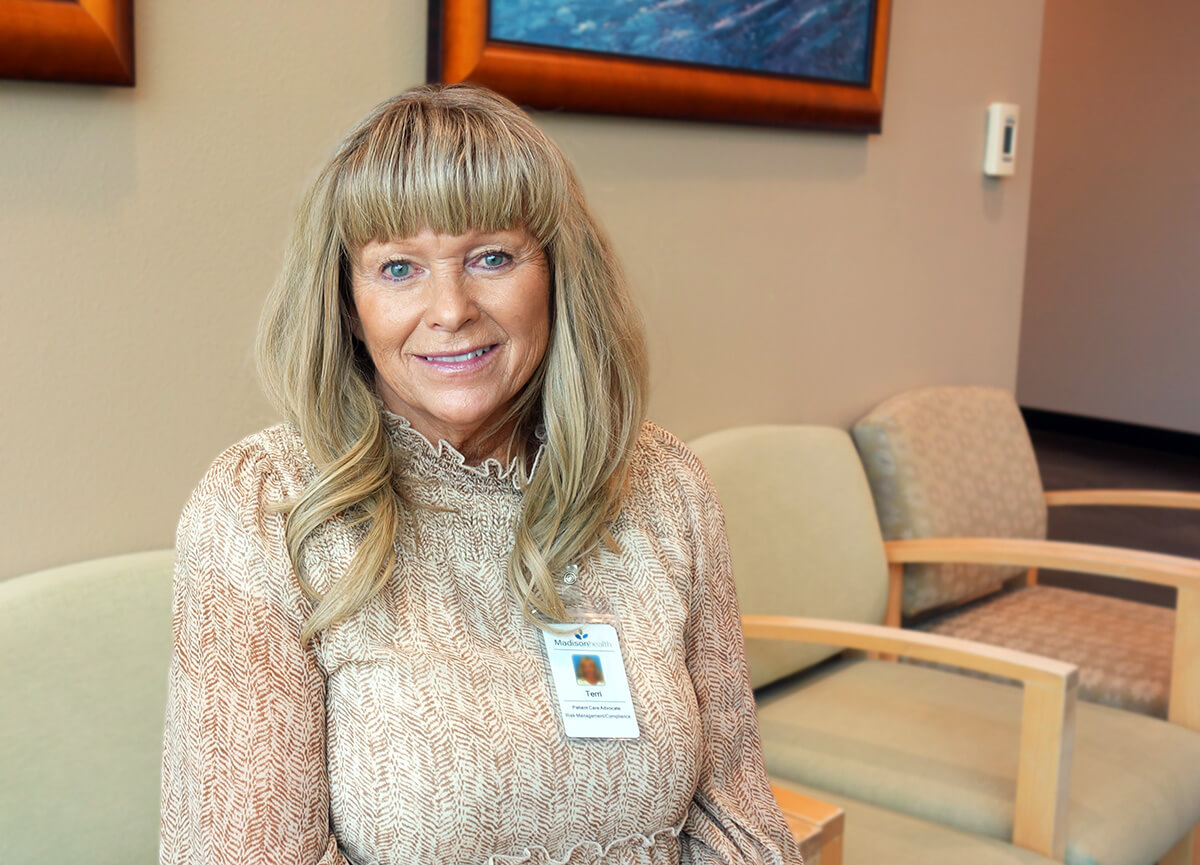
Story and Photo by Jeremiah Kalb
While listening to angry, upset patients or their families all day may sound like a nightmare to most, patient care advocate Terri Farrer finds her work a source of fulfillment.
“When I can explain how and why a patient’s care was appropriate after investigating their concerns, it reinforces what a really incredible place Madison Memorial is,” Farrer says.
The landscape Farrer navigates to explore an issue and have a meaningful conversation does not usually begin as a walk in the park for the patient.
Before the patient, family, or caregiver found the fortitude, energy, and bravery to ‘complain’ to Farrer, they likely faced a medical crisis that turned their world upside down.
This patient experience makes Farrer’s work challenging, but she does not let this distract her from her mission.
“Patients have the right to report and have concerns addressed,” she says.
With one’s health on the line, it is understandable why the care provided might come into question from time to time.
“Patients are informed and reassured we are happy to investigate,” Farrer says. “They are asked what we could do to best resolve this for them.”
Farrer points out that facts determine the outcome. “I can’t side with the patient or the hospital until I know the facts.”
To collect all the facts, Farrer gathers information from the patient’s medical record, staff, and departments. Sometimes security footage is used to determine the facts.
“I present this to the Patient Care Committee who often have additional input or information requests,” Farrer says. “Together, we review all information and come to an agreement on how to best address the concern.”
One might believe the most used remedy to complaints is for the Organization to write off bills, but this is not the case.
Rendered services still cost money, even if some of the patient’s experience does not go exactly the way they expected. In these instances, effective communication is the key.
Born at Madison Memorial and raised in Hibbard, Idaho, on a little ranch with seven brothers and sisters, Farrer found her way back to Madison over 18 years ago.
She started in Health Information Management, then transferred to Risk/Compliance where she eventually accepted the role of Patient Care Advocate in 2010.
“I felt I could help with some of the communication concerns we were experiencing at the time,” Farrer says.
Her ability to turn patient complaints into Madison Moments has made Farrer great for the job over the past 12 years.
A common concern that arises after a medical workup is when the patient learns they are not suffering from anything serious. “Terri is able to discuss with them that even though the tests came back normal, we ruled out some pretty serious conditions,” says Nolan Bybee, Director of Risk/Compliance.
“I think most patients want to be heard if something seemed wrong to them and know it will be addressed,” Farrer says.
Her protocol is to verbally report the outcome to the patient and send them a resolution letter noting their concern and the actions that the hospital took.
The patient complaints Farrer collects play a significant role in learning and quality improvement in the healthcare ecosystem. The hope is for better patient safety and outcomes.
“Complaints and grievances are vital and full of opportunities to improve service to our patients and communities,” Farrer says.
She can also re-imagine the concept and process for ‘compliments and complaints’ in healthcare and hospital settings.
“I would hope to see patients feel empowered enough in the future that they speak up at the time of a concern, during their care, so that it can be explained or addressed right then and there and not turn into a grievance,” she says.
